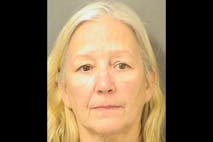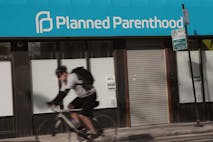
Thousands of South Korea schools close as birth rate plummets
Cassy Cooke
·
California now requires public universities to provide the abortion pill
California Governor Gavin Newsom has signed SB24 requiring health centers at public universities to offer the abortion pill to students by 2023. All 11 University of California campuses and 23 California State University campuses will be forced to participate.
Both the University of California and California State University have concerns about providing the abortion pill to students, including cost and liability. Pro-lifers have expressed similar concerns. With at least 24 confirmed abortion pill related deaths of women along with thousands of hospitalizations, giving students the abortion pill to take in their dorm rooms or campus apartments raises serious concerns.

“We know that some women will experience severe injury and loss of life,” said Students for Life of America (SFLA) President Kristan Hawkins during her testimony regarding the bill before the Senate Education Committee. “There is no educational reason to expose California schools and students to such risk and liability at taxpayer and student expense, especially in light of other, available alternatives.”
READ: ‘So painful. So much blood’: Women share abortion pill horrors on YouTube
SFLA estimates that between 15 and 75 students per month will require follow-up surgery when the abortion pill fails as is likely to happen. The pro-life group also warns that pro-life students on campus will have their conscience rights violated as they are forced to subsidize the health centers that distribute the abortion pill. The state’s finance committee estimates that the cost to students of adding the abortion pill to health centers on campus will be $500. The health care workers on campus who oppose abortion may also be forced to participate against their conscience, according to SFLA.
According to the San Francisco Chronicle, health centers at the universities will need to purchase ultrasound machines in order to properly date pregnancies, since the abortion pill should not be taken after 10 weeks gestation. Health center staff must also be able to diagnose conditions that may cause additional complications when the abortion pill is taken, such as ectopic pregnancy. Staff must be trained on administering the abortion pill, and a 24-hour hotline must be set up in case of emergency. Health centers must also gain admitting privileges to local hospitals for students with more serious complications.
Article continues below
Dear Reader,
In 2026, Live Action is heading straight where the battle is fiercest: college campuses.
We have a bold initiative to establish 100 Live Action campus chapters within the next year, and your partnership will make it a success!
Your support today will help train and equip young leaders, bring Live Action’s educational content into academic environments, host on-campus events and debates, and empower students to challenge the pro-abortion status quo with truth and compassion.
Invest in pro-life grassroots outreach and cultural formation with your QUADRUPLED year-end gift!

Democrat Sen. Connie Leyva began the push to get abortion pills on state university campuses in 2017, claiming that young college students need easier access to abortion. That bill was vetoed by then-Governor Jerry Brown who said that medical abortions are “widely available off-campus.” After Newsom announced during his gubernatorial campaign in 2018 that he would have signed the bill, Leyva decided to try again.
“By ensuring that abortion care is available on campus, college students will not have to choose between delaying important medical care or needing to travel long distances or even missing classes or work,” Levya said in a statement.
Instead, what will happen is young college students already feeling overwhelmed will feel even more pressured to abort since the university they are attending is ready and willing to give them an abortion. It confirms the anti-feminist message that women aren’t strong enough or smart enough to be able to earn a degree and parent. It puts women even more in a situation where they feel they must choose between their babies and their education, with easy access to the pill making them feel as if abortion is the only acceptable choice.
Individuals who want to ensure young women feel they must sacrifice the lives of their preborn children for their education have already raised over $10 million to pay for staff training, ultrasounds and other equipment, and security upgrades.
“Like” Live Action News on Facebook for more pro-life news and commentary!
Live Action News is pro-life news and commentary from a pro-life perspective.
Contact editor@liveaction.org for questions, corrections, or if you are seeking permission to reprint any Live Action News content.
Guest Articles: To submit a guest article to Live Action News, email editor@liveaction.org with an attached Word document of 800-1000 words. Please also attach any photos relevant to your submission if applicable. If your submission is accepted for publication, you will be notified within three weeks. Guest articles are not compensated (see our Open License Agreement). Thank you for your interest in Live Action News!

Cassy Cooke
·
Issues
Bridget Sielicki
·
Issues
Angeline Tan
·
Issues
Nancy Flanders
·
Issues
Wesley J. Smith
·
Issues
Michael J. New
·
Issues
Nancy Flanders
·
Media
Nancy Flanders
·
Issues
Nancy Flanders
·
Activism
Nancy Flanders
·
Issues
Nancy Flanders
·